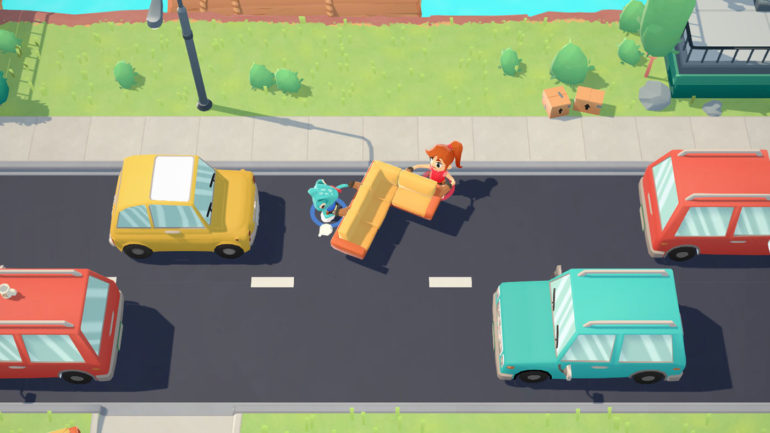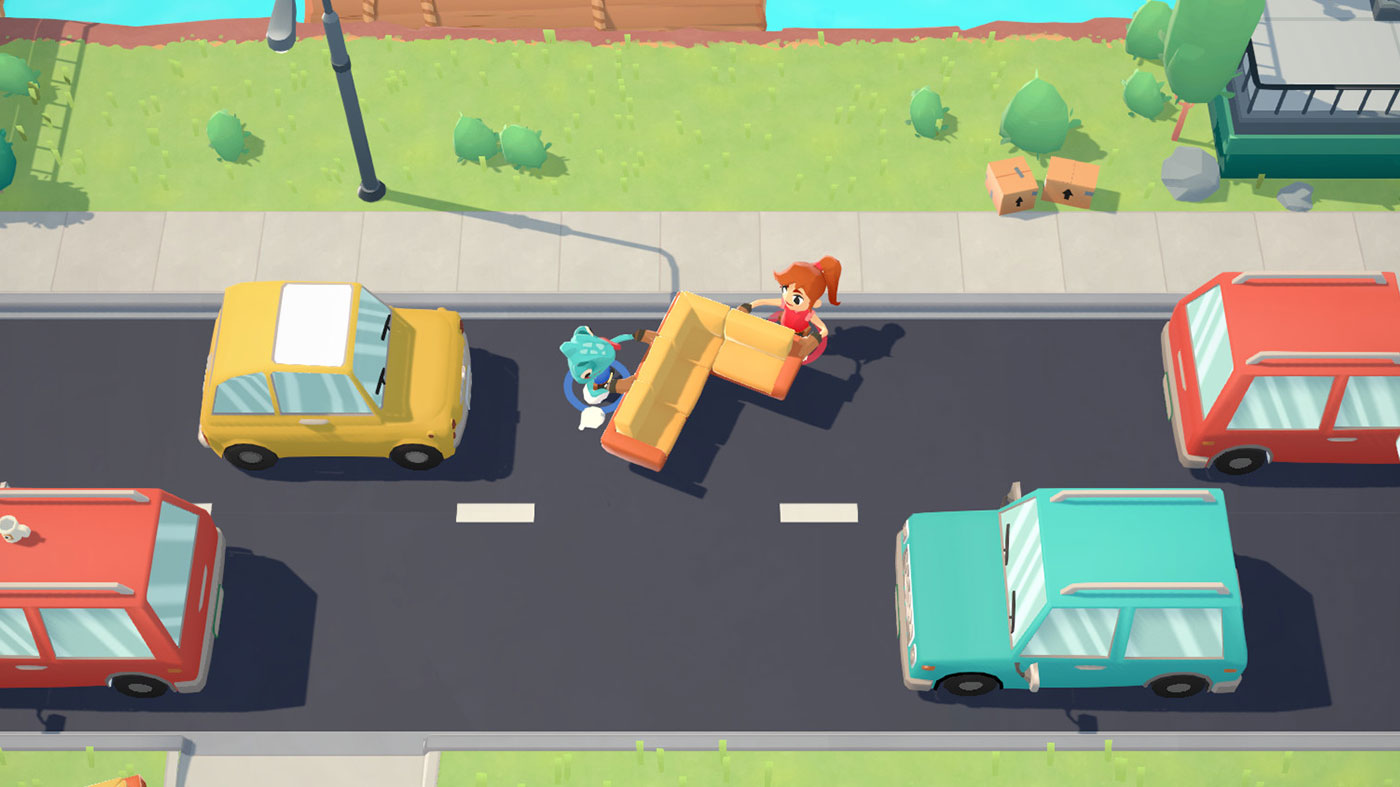Press Start may receive a commission when you buy from links on our site at no extra cost to you.
During these times of isolation, there’s nothing quite like playing a crazy and chaotic multiplayer game with your close friends and family. While the likes of Overcooked and Lego games have likely run their course within your household, there’s another title on the horizon that can easily fill that void. Moving Out is a physics-based moving simulator that can be played either solo, or with up to four other players in coop. While it sounds boring in concept, Moving Out is one of the best entries into this genre of games in recent times and is a must play for any fans of Overcooked or couch coop games in general.
While narrative is never a big focus for these games, and they mostly serve as a vehicle to get the gameplay moving, Moving Out has a silly and entertaining story that plays out across each of its levels. While it starts simple, it does evolve into something a little bit deeper, and it makes for an entertaining ride throughout. This is due in large part to the excellent writing, filled with clever jokes and the kind of comedy that’s guaranteed to get a giggle out of you every now and again. It’s a simple, clean, well-written narrative that doesn’t hold back with its humor, but what else could you possibly want from a game like this.
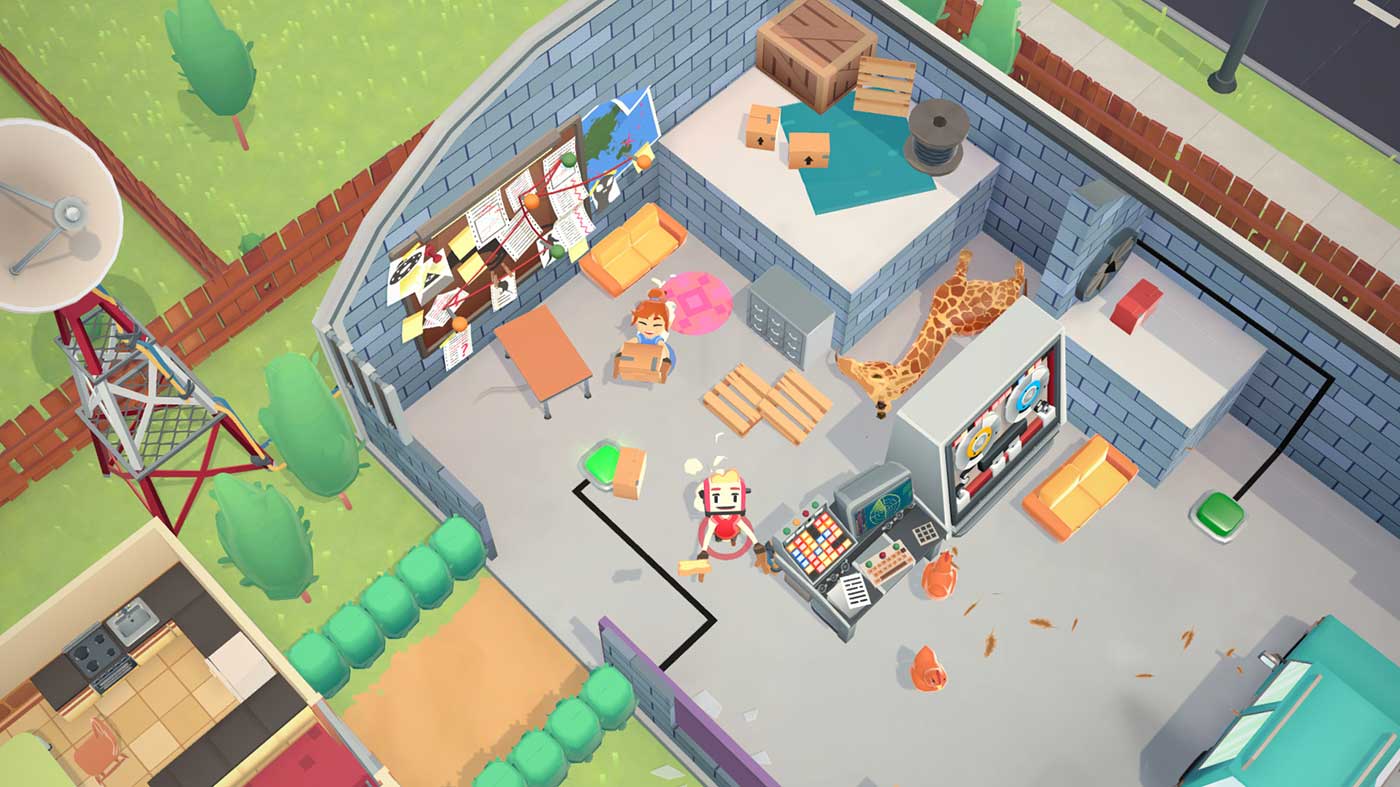
Gameplay-wise, Moving Out has very simple foundations, but it’s the way that these foundations are built upon and tested that keeps the loop so fresh. As a professional mover, your job is to lift furniture and other items of interest into your moving truck. You’re timed on each level, awarding different medals depending on how fast you move all the furniture, much like how Overcooked grades you based on your success. Each item requires either one or two movers to transport it efficiently. You can manipulate and rotate furniture to fit through doors, make use of your environment by tossing things out of broken windows for shortcuts, and most importantly you can slap pesky ghosts and fellow players who need it. The end result is a cathartically cooperative experience that’s unlike anything else I’ve ever played, and that’s due in large part to the level design.
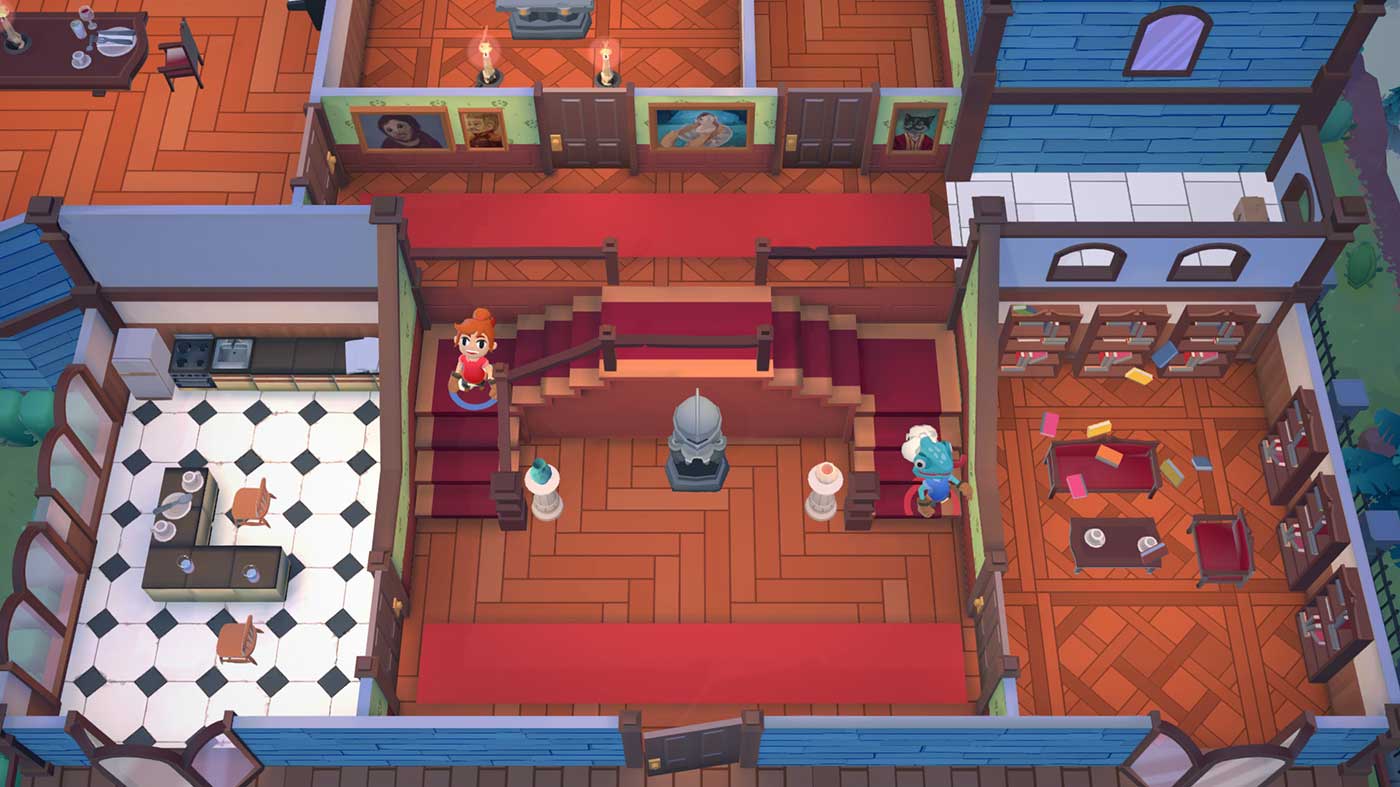
While Moving Out starts simple with small one-bedroom houses with only three or four rooms and a dozen of items to move, it’s quick to involve other elements that make your move more tricky, and encourages you to think more about how to get the job done. One level might employ oil spills to make the ground slippery, buttons that require some sort of weight on them to activate a bridge or a door, and so much more. It gets borderline devious towards the end and becomes truly challenging, but it never feels unfair, and overcoming these obstacles is gratifying and rewarding in its own way. In saying that, I did notice a few bugs and glitches that made the game more difficult than necessary, things like shoddy hit-detection, and getting stuck between objects that would result in a few deaths, costing us a few seconds towards that coveted gold medal.
Each level has its own secret objectives to complete that are unveiled to you once you complete it for the first time. Things like delivering silly objects that aren’t required on the moving list like a garden flamingo or playing small minigames like shooting hoops in the front yard of the house you’re meant to be clearing out. Unfortunately, some of these objectives can be a bit time consuming when you go back to complete them, putting them at odds with the timed grading for gold medals, which makes it hard to complete those bonus objectives while also striving for gold. Completing these objectives will net you coins, and every five coins will unlock an arcade level for you and your fellow movers to tackle. The arcade levels are novel ideas that you wouldn’t see implemented into regular levels. Things like carrying a couch across a tight rope like platform that twists and turns, or maybe tossing boxes across fans to propel them into moving trucks on the other side of the level. Each of the arcade levels I’ve played have been thoroughly enjoyable, and it’s well worth unlocking these levels to experience them.
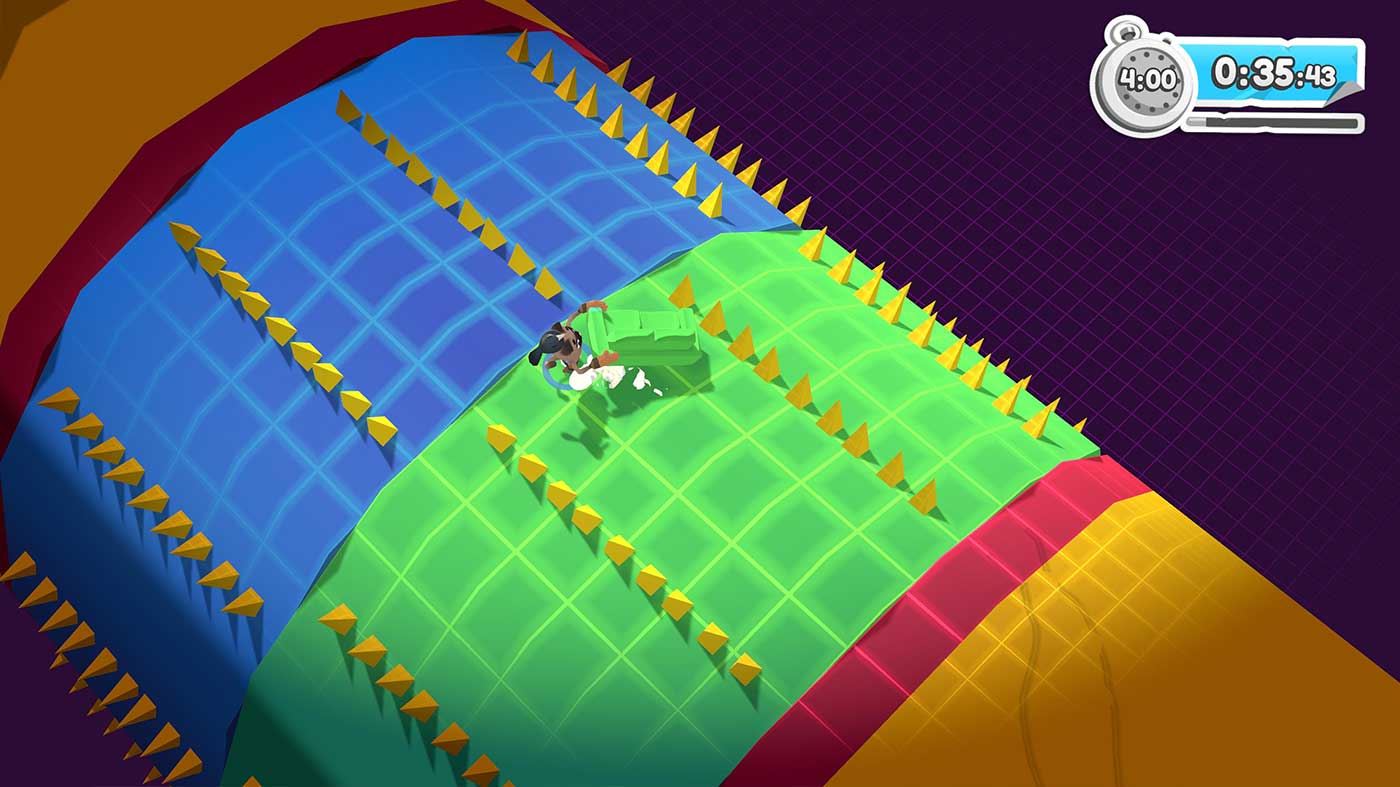
Because these games attract a huge audience of both casual and hardcore gamers, it’s important to have a bevvy of accessibility options for all kinds of players and Moving Out is akin to a well-crafted triple A experience in this regard. Scalable UI, dyslexic options, toggle changes, customizable controls, and most importantly, the assist mode. I’m a big advocate for difficulty, but I think it’s important for games like Moving Out to include comprehensive options to make the game more enjoyable for casual players, and Assist Mode does just that. You get longer time limits, delivered objects disappear in the moving truck so you have more space to work with, changes to level design to make it easier, and skippable levels. While it sounds brainless that this stuff should be included, but it’s staggering how many games neglect these kinds of options when casual players are a big part of their target audience.
Moving Out is an absolute joy to look at. It sports a bright and vibrant color palette with a simple art-style that combines to create a visually appealing and polished looking experience. Each level is unique and identifiable with colorful backgrounds and visual elements exclusive to that area. The way that these levels evolve over time visually alongside the gameplay provides a stark sense of progression and place within the world. While few and far between, I did experience one small visual bug which involved objects clipping through other objects which could make it hard to keep track of things at times.


